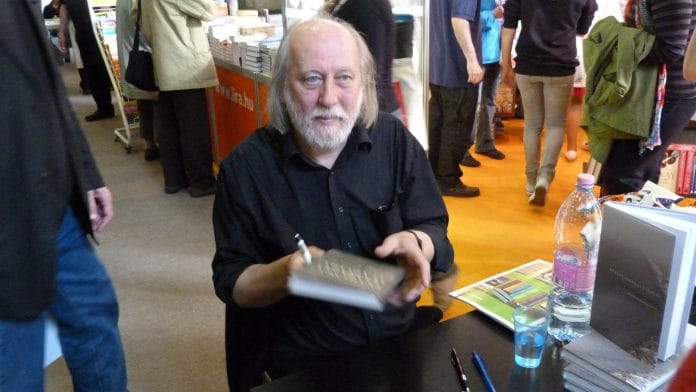New Delhi: The Nobel Prize for Literature has been awarded to Hungarian author László Krasznahorkai, known for his books, which situate narratives of dystopia and melancholy at the centre of the human experience. His books include ‘The Melancholy of Resistance’, ‘The Last Wolf’, and ‘War and War’.
The Nobel committee said that he had been awarded the prize “for his compelling and visionary oeuvre that, in the midst of apocalyptic terror, reaffirms the power of art.”
The postmodern writer was considered a frontrunner in this year’s Nobel race and was also the recipient of the Man Booker International Prize in 2015. Born in 1954, he rose to fame in 1985 with Satantago (loosely translated as Satan’s Tango), which was also adapted into a seven-hour film. American essayist Susan Sontag called him “the contemporary master of the apocalypse.”
“Nobody—myself included—could understand how it was possible to publish Satantango because it’s anything but an unproblematic novel for the Communist system,” Krasznahorkai told the Paris Review in his Art of Fiction interview.
Known for his looming, capacious sentences — one even 70 pages — Krasznahorkai has been projected as a cult figure of sorts. His novels deal with despondency, isolation and a slew of apocalyptic themes. The World Goes On (2018), a short story collection for which he was nominated for a Booker, tracks solitary men in various locations, including Varanasi.
“Reading changed for me in reading this book. It’s as though he replaced stream of consciousness with something deeper. Stream of subconsciousness?” wrote Nicky Loomis in the Los Angeles Review of Books.
Also read: New Paresh Rawal film brings back Tejo Mahalaya controversy. ‘Based on facts,’ teaser says
Mystical writer
While from Hungary, Krasznahorkai lives in Berlin and is famously private.
“With his long hair and mournful eyes, he looks like a benign saint. He is also a man of absolute privacy; he never, therefore, wanted to meet in his apartment. Instead, we conducted long sessions in its general environs, in various cafés and restaurants around Kreuzberg,” wrote Adam Thurwell in the introduction to the Art of Fiction interview.
Despite now being the winner of what is arguably the world’s biggest award, a layer of mystique continues to surround the writer. In large part, this is due to the fact that only a few of his books have been translated and made it to the English-speaking world. James Wood, in The New Yorker, describes the overarching idea, embedded into every word, behind his work: “reality examined to the point of madness.”
“He has lived in both Germany and America, but his name is more familiar in Europe than it is here,” wrote Wood. The profile also says that he is spoken of as a “potential Nobel laureate” and is a “canonical figure” in Germany.
Wood, like Loomis in the Los Angeles Review of the Book, speaks of his experience as a reader. Krasznahorkai’s books are complex animals. Not only are they thematically difficult, but the language itself contains an intensity.
Madness, a life lived on the margins, the weird and the unpalatable—these are what define the work of the 71-year-old author.
Last year’s Nobel Prize was awarded to South Korean author Han Kang, who also deals with the complexities of the human experience.
(Edited by Saptak Datta)






